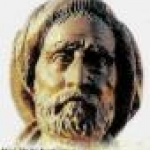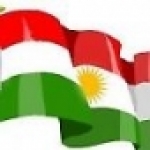December 18, 2009
EDITORIAL
Iraq, the Kurds and the Americans
Four months ago, with little fanfare, the State Department sent a full-time senior diplomat, Alan Misenheimer, to live in Iraq's disputed oil-rich city Kirkuk. For the Obama administration, which had been hoping to back out of its day-to-day involvement in Iraq's fractious politics, it was a smart, if belated, call.
It was a recognition that the bitter discord between Iraq's Kurdish regional government and the Shiite-Arab- dominated central government — over land, oil and the power of the central government — is the most dangerous fault line in Iraq today. It was also an acknowledgment that if these conflicts are to be settled, or at least kept from igniting a new civil war, there must be deft and sustained American involvement.
Kurds and Arabs both lay claim to Kirkuk. This complicates, at times paralyzes, federal decision-making, including issues regarding the recently adopted election law. A referendum on Kirkuk's future, required by the Iraqi Constitution, has been postponed repeatedly because of Baghdad's fear that it would formalize Kurdish control.
In July, the Kurds came perilously close to holding a referendum on a regional constitution that would have unilaterally asserted control over Kirkuk. (Iraq's election commission conveniently decided there wasn't time to include the issue on the Kurdish ballots and Vice President Joe Biden, who has longstanding ties to the Kurds, urged the Kurds to postpone the referendum.)
There have been military face-offs — but luckily no actual conflict — between Kurdish and Arab troops. Sunni Arab extremists linked to Al Qaeda are eager to exploit these tensions.
The situation cannot be left to drift. Washington must make clear it will not accept a Kurdish secession or a Kurdish grab for Kirkuk, and that either would mean the end of American support. Baghdad must engage in good-faith negotiations over disputed territory and ensure that the Kurds receive an equitable share of oil revenue. But the Kurds must abandon any dream of controlling all of the region's oil revenue. The United States estimates Kurdistan has 10-15 percent of Iraq's reserves while the Kirkuk area holds as much as 25 percent.
•
Since the end of the gulf war, Washington has been the Kurds' chief patron, defender and, at times, enabler.
To protect the Kurds from Saddam Hussein, NATO imposed a no-flight zone over northern Iraq and helped the Kurds build their autonomous region there — a virtual state within a state, commonly known as Kurdistan.
During the 2003 American invasion, the Bush administration enlisted the Kurdish militia, the peshmerga, as a proxy force and gave it free rein to expand beyond the 1991 regional border.
The Kurdish government, which officially controls three provinces, also claims cities and towns in three more just over the regional border. Those claims have become more insistent as President Obama's August 2010 deadline for withdrawing combat troops nears.
With just eight months until then, American officials — in Iraq and in Washington — have a lot of work to do to lower tensions between the Kurds and the rest of Iraq. Here are some of the most pressing issues:
2010 ELECTION It took considerable American arm-twisting to get the Iraqis to drop their disputes (including ones over who could vote in Kirkuk) and adopt a law for parliamentary elections, now scheduled for March. The election is a key test of Iraq's nascent democracy and a prerequisite for American troops to depart on schedule. American officials must press Iraqi politicians to avoid the kind of absolutist ethnically based campaign rhetoric that will make post-election deals harder.
After the 2005 elections it took the Iraqis months to agree on a government. Experts expect Kurdish leaders to demand Kirkuk-related concessions as part of a deal to choose a prime minister and deputies. Iraq's political system is stronger, but in this critical phase, American officials still must be ready to cajole, and, if necessary, push Iraqis to form a government and move ahead.
KIRKUK Decades of horrific abuse by Saddam Hussein — including the 1988 gassing of thousands of Kurds in Halabja — have driven Kurdish mistrust and resentment. Saddam forced thousands of Kurds and other minorities from the region and repopulated it with Arabs. That does not inevitably entitle the Kurds to more than a dozen disputed towns and villages in three border provinces: Kirkuk, Nineveh and Diyala.
The most fiercely contested is the multi-ethnic city of Kirkuk and its surrounding province. (The Kurdish government is trying to bolster its claims by encouraging more Kurds to move there.) In April, the United Nations briefed Iraqi officials on a report outlining possible solutions, including a proposal that Kirkuk become an autonomous region run by Kurds, Arabs and Turkmen.
Given the heated environment, the report has never been made public and American officials decided there was no chance for serious negotiations before the election. After that, they must quickly press all sides to establish a credible process for resolving the dispute.
If an early deal on Kirkuk is impossible, all three governments — Baghdad, the Kurds and Washington — should consider a period of outside administration, maybe United Nations-led. A referendum should only ratify a negotiated solution.
MOSUL The other hot spot is Nineveh Province and its capital, Mosul. Kurds are a strong minority, but after the Sunnis boycotted the 2005 provincial election, Kurds won control of the government. Even before that, the Kurdish regional government sought to create “facts on the ground,“ establishing security offices and checkpoints run by the peshmerga in many villages.
Fortunes in Nineveh shifted this year, when the Sunnis participated in provincial elections, and won the majority of council seats. They then stripped the Kurdish bloc, which came in second, of all positions and patronage. Since then tensions have continued to rise.
The United States and the United Nations must intensify mediation efforts. Arab-controlled regional governments must give Kurds and other minorities a legitimate share of power. Kurdish militia forces must be integrated into the federal army and regional police units. Last month, Human Rights Watch accused Kurdish authorities in the disputed provinces of using intimidation, threats, arrests and detention against minorities who resist Kurdish expansion plans.
OIL There is a lot of history behind the territorial disputes, but there is also a lot of money at stake. For two years, the central government has failed to adopt two crucial laws — one, setting rules for managing oil resources and the other, fixing a formula for sharing oil revenues between Baghdad and the regions.
Iraq continues to export oil, but without a legal framework for oil contracts, it cannot reliably attract the foreign investors needed to expand production. The regions, including Kurdistan, already receive a share of oil revenues. But mistrust on all sides is fierce.
The Kurds have challenged Baghdad's control by negotiating more than 30 oil contracts, and they pushed the dispute even further in October by halting oil exports from Kurdistan until Baghdad pays the international companies pumping from that region. The central government, which collects oil revenues, has refused to pay for the oil because it considers the contracts signed with Kurdistan to be illegal. The Bush administration never pressed Iraqis hard enough to settle the oil issue, and the Obama administration has not done any better. A negotiated solution, perhaps linked to Kirkuk, must be a priority to give Iraq's ethnic groups more certainty about their share of the resources and to mitigate furies that could still tear the country apart.
WEAPONS Before the United States can leave Iraq, it has to continue building up Iraq's Army. For that it will have to sell or give it better equipment including tanks and perhaps high-performance jets. Iraq needs to be able to defend itself in a dangerous region. But any buildup is inevitably going to feed Kurdish fears that they could become a target. Washington will have to pace its deliveries carefully and insist on guarantees that this equipment will never be turned against any Iraqis.
•
Iraq's political leaders need to find solutions to these issues as quickly as possible. The Obama administration must work assiduously to pave the way for agreements now when its diplomatic muscle is still reinforced by troops on the ground.
America's primary goal should be an orderly withdrawal that leaves Iraq with a chance at staying unified, sovereign and democratic. Washington has a strong claim on the Kurdish cooperation needed to achieve that.






Re: Amerikan yonetimine Kurdler ile ilgili demokrat-basinin ogut